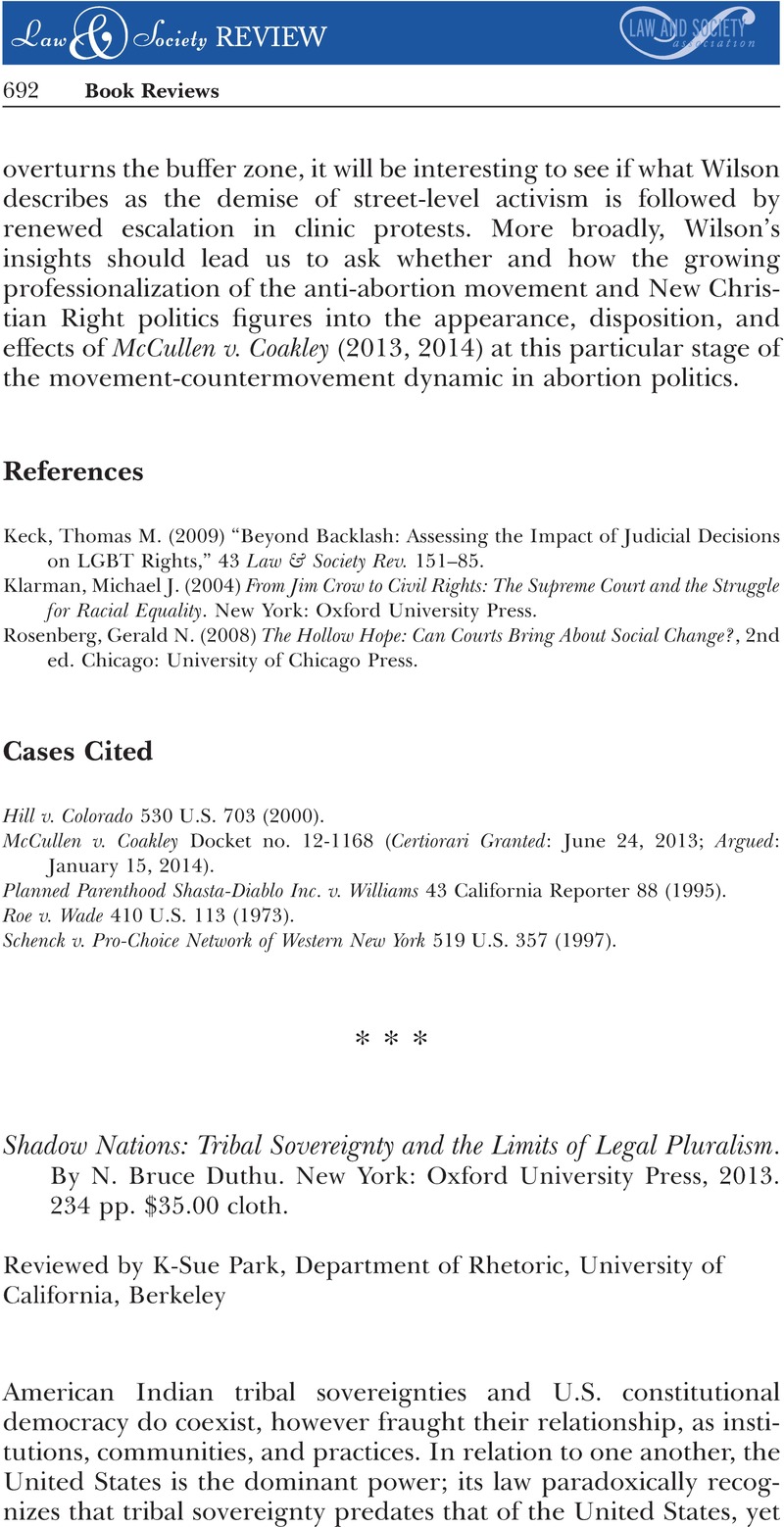No CrossRef data available.
Article contents
Shadow Nations: Tribal Sovereignty and the Limits of Legal Pluralism. By N. Bruce Duthu. New York: Oxford University Press, 2013. 234 pp. $35.00 cloth.
Review products
Shadow Nations: Tribal Sovereignty and the Limits of Legal Pluralism. By N. Bruce Duthu. New York: Oxford University Press, 2013. 234 pp. $35.00 cloth.
Published online by Cambridge University Press: 01 January 2024
Abstract
An abstract is not available for this content so a preview has been provided. Please use the Get access link above for information on how to access this content.

- Type
- Book Review
- Information
- Copyright
- © 2014 Law and Society Association.


